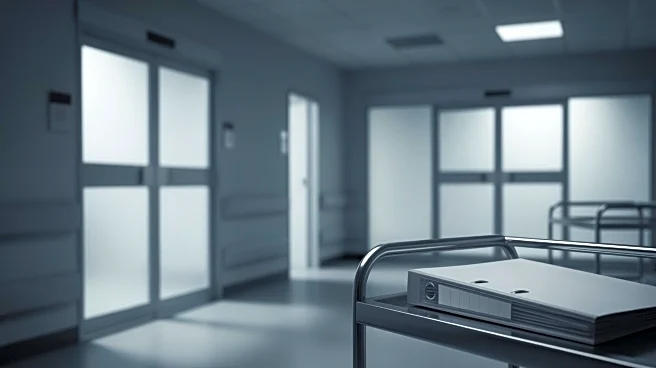What's Happening?
OpenAI has introduced a new browser named Atlas, powered by ChatGPT, which allows users to navigate the web using natural language. This browser includes an 'agent mode' that can autonomously complete
tasks, marking a significant development in browser technology. However, Atlas's launch is overshadowed by a security flaw that could potentially expose sensitive information such as passwords and emails. The debut of Atlas is part of a broader trend of alternative browsers entering the market, aiming to leverage AI to enhance user experience. The launch coincides with a major AWS outage that disrupted internet services, highlighting the vulnerabilities in current tech infrastructure.
Why It's Important?
The introduction of AI-powered browsers like Atlas represents a shift in how users interact with the internet, potentially simplifying web navigation and task completion. This development could influence the competitive landscape of browser technology, challenging established players like Google Chrome and Mozilla Firefox. However, the security flaw in Atlas raises concerns about data privacy and protection, which are critical issues in the digital age. The AWS outage further underscores the need for robust and secure tech infrastructure, as reliance on cloud services continues to grow. Stakeholders in the tech industry, including developers and cybersecurity experts, will need to address these challenges to ensure user trust and safety.
What's Next?
OpenAI is expected to address the security vulnerabilities in Atlas to prevent data breaches and protect user information. As AI browsers gain traction, other tech companies may follow suit, integrating AI into their products to remain competitive. The ongoing development of AI technology will likely lead to more innovative applications in web browsing and beyond. Additionally, the recent AWS outage may prompt discussions on improving cloud service reliability and security, potentially leading to infrastructure upgrades and policy changes.
Beyond the Headlines
The rise of AI-powered browsers like Atlas could have long-term implications for digital literacy and accessibility, making the internet more navigable for users with varying levels of tech proficiency. Ethical considerations regarding AI autonomy and data privacy will become increasingly important as these technologies evolve. The integration of AI into everyday tools may also influence cultural perceptions of technology, shifting expectations around convenience and security.









